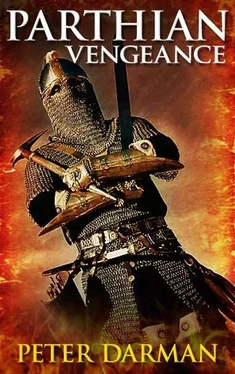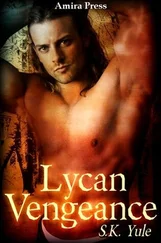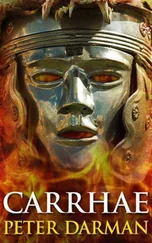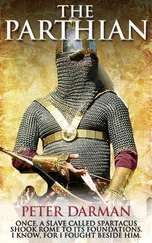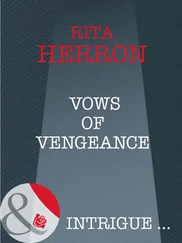Peter Darman - Parthian Vengeance
Здесь есть возможность читать онлайн «Peter Darman - Parthian Vengeance» весь текст электронной книги совершенно бесплатно (целиком полную версию без сокращений). В некоторых случаях можно слушать аудио, скачать через торрент в формате fb2 и присутствует краткое содержание. Год выпуска: 2012, Жанр: Исторические приключения, на английском языке. Описание произведения, (предисловие) а так же отзывы посетителей доступны на портале библиотеки ЛибКат.
- Название:Parthian Vengeance
- Автор:
- Жанр:
- Год:2012
- ISBN:нет данных
- Рейтинг книги:5 / 5. Голосов: 1
-
Избранное:Добавить в избранное
- Отзывы:
-
Ваша оценка:
- 100
- 1
- 2
- 3
- 4
- 5
Parthian Vengeance: краткое содержание, описание и аннотация
Предлагаем к чтению аннотацию, описание, краткое содержание или предисловие (зависит от того, что написал сам автор книги «Parthian Vengeance»). Если вы не нашли необходимую информацию о книге — напишите в комментариях, мы постараемся отыскать её.
Parthian Vengeance — читать онлайн бесплатно полную книгу (весь текст) целиком
Ниже представлен текст книги, разбитый по страницам. Система сохранения места последней прочитанной страницы, позволяет с удобством читать онлайн бесплатно книгу «Parthian Vengeance», без необходимости каждый раз заново искать на чём Вы остановились. Поставьте закладку, и сможете в любой момент перейти на страницу, на которой закончили чтение.
Интервал:
Закладка:
Train hard, fight easy. That is what my old tutor and former head of Hatra’s army, Bozan, had taught me. Train hard so that in battle every drill becomes instinctive, performed without thinking. Train hard so that drills are bloodless battles and battles are bloody drills, nothing more. Train hard so that the hordes of enemy soldiers charging you, yelling blood-curdling screams, do not cause you to turn tail and run for your life; rather, you wait until they are within fifty paces before hurling your javelin into their densely packed ranks. Then you go to work with your sword as the enemy steps over the dead and dying javelin-pierced front ranks to get at you. Train hard so that it becomes easy, almost pleasurable to stab your short sword into enemy bellies and thighs, to thrust the sword point over the top rim of your shield into an enemy’s face. To stab and stab without thinking, knowing that your blade will find the right targets as if by magic. But it is not magic; it is hours, days, months and years spent on the training fields to perfect your skills, to hone them to such a degree that your weapons become a part of you, living, breathing instruments that obey your will instantly and without question.
I turned to Vagharsh.
‘Time to show them what they are fighting for,’ and dug my knees into Remus.
He reared up on his hind legs and then raced forward. Vagharsh followed at a gallop as my griffin banner fluttered beside him. We rode from left to right along the front of the Exiles and then the Duran Legion, legionaries banging their javelins against their shield rims and shouting ‘Dura, Dura’ as we passed them by. Pure theatre but they loved it. We passed Domitus standing ahead of the Duran Legion, a solitary figure with a white crest on his helmet. He drew his gladius and clutched it to his chest as I thundered by. And behind him ten thousand men steeled themselves to earn another silver disc for the Staff of Victory.
I rode to where the horse archers were drawn up in two ranks five hundred paces in front of the legions and galloped to the centre of the line. I halted and walked Remus forward a few paces. There, filling the horizon, was the army of Mithridates — thousands of men on horses moving forward. There was no foot as Byrd said, only cavalry. I squinted and tried to make out what types of horsemen we faced. I could see spears and shields and the sun glinting off scale armour. They appeared to be a mixture of cataphracts and mounted spearmen. Their frontage was unbroken, suggesting they were deployed in one great mass.
I turned and called forward the senior officer of the horse archers as the enemy blew horns and kettle drummers banged their instruments. Among the front ranks of the enemy I could now make out dragon windsocks and great banners displaying the symbol of Susiana — the eagle clutching a snake — the same standard that Orodes, the true heir to the throne of that kingdom, carried.
‘On my signal we will advance,’ I said to the commander. ‘Your men are prepared?’
‘Every man knows the plan, majesty,’ he replied.
I nodded and he returned to his men.
‘Time for you to retire, Vagharsh.’
The banner he carried had been a present from Dobbai before I had even taken up residence at Dura. When I was not on campaign it hung behind the dais in the throne room in the Citadel. To many in the kingdom it was a sacred object imbued with magical powers. As such I was also careful to ensure its safety on the battlefield, and the life of the one who carried it. Vagharsh rode through the horse archers and back to the Duran Legion as I pulled my bow from its case and held it aloft. To my left and right three thousand men replied in kind, raising their bows in the air.
The din from the enemy ranks increased as they got nearer. They were perhaps a quarter of a mile away now.
Moving at a steady pace I saw that the centre of their line was composed of cataphracts, the men bringing down their great lances to hold them with both hands by the sides of their horses. They were obviously going to charge us. It made sense. We were, after all, only lightly armed horse archers. I dug my knees into Remus’ sides and he broke into a canter, then a gallop. The men behind me followed. The distance between us and the enemy narrowed as I nocked an arrow, drew back the bowstring and released it, then whipped another arrow from my quiver. I nocked it in the bowstring and released it. The enemy were around six or seven hundred paces from me now as I pulled a third arrow, shot it and then yanked on Remus’ reins to turn him left and then left again. The enemy had broken into a gallop and I could hear their war cries as I yelled at Remus to move faster as I tried to outpace them. The other horse archers had also about-faced and were riding full pelt towards the legions as though demons were snapping at their heels. Remus, wild-eyed and straining every sinew in his powerful frame to outrun the enemy, thundered across the ground and headed towards one of the gaps between the cohorts. I prayed to Shamash that because the cataphracts and spearmen were heavily armed we would be able to widen the gap between them and us. But it would be tight.
I could see the cohorts now, a wall of white shields and shining helmets standing like great slabs of rock on the desert floor. I hurtled through one of the gaps with hundreds of others following me, then passed through the second line of cohorts. I should have run straight into a cohort that stood directly behind the gap between two cohorts in the first line. But the second-line cohorts had parted, the two halves of each one moving left and right to stand directly behind a cohort in the first line. This allowed the horsemen to pass through both lines unimpeded. That was the easy bit.
As soon as all the horse archers had passed safely though their lines, the legionaries of the second line had to race forward to fill the gaps in the first line. This was the hard part, for if they failed not only would the enemy be able to pour through the gaps where the second-line cohorts were supposed to be, they would also hit the men of that second line who were attempting to move forward. The result would be chaos and slaughter.
But they did not fail. As soon as the last horse archers had passed them by the men of the second-line cohorts rushed forward to fill the gaps in the first line and present a continuous front to the enemy. And as they reached their positions, like their comrades who had been in the first line the first five ranks hurled their javelins at the horde of enemy riders bearing down on them. Around three thousand javelins arched into the air as Mithridates’ horsemen hit the front ranks of the legionaries. A sickening grinding noise reverberated across the battlefield as thousands of horsemen tried to turn their mounts aside to avoid hitting a solid wall of leather, wood and steel.
A horse, even when gripped by terror in battle, will not run at a solid object. He will either try to run through any gaps in front of him or turn aside to avoid hitting said object; others will attempt to stop dead, especially when a torrent of javelins is about to engulf them. Cataphracts and spearmen became a tangled mass of horse and human flesh as animals pulled up and catapulted their riders over their heads, while others somersaulted over and over, crushing their riders under them as they did so. Those behind smashed into the ones in front as others were hit and pierced by javelins.
The javelin rain had saved the front ranks of the legionaries from becoming entangled in the grisly drama as the first line of horsemen had careered into the missiles, which had killed their momentum. But it takes nerves of steel to stand in a tightly packed formation of men while thousands of horses’ hooves are shaking the earth and coming closer at alarming speed. To not only stand but also still perform their drills — to throw their javelins and then draw their swords for close-quarter combat. They had practised for this day for years, sweating under a Mesopotamian sun and practising over and over again until they responded to orders and trumpet blasts without thinking. Train hard, fight easy.
Читать дальшеИнтервал:
Закладка:
Похожие книги на «Parthian Vengeance»
Представляем Вашему вниманию похожие книги на «Parthian Vengeance» списком для выбора. Мы отобрали схожую по названию и смыслу литературу в надежде предоставить читателям больше вариантов отыскать новые, интересные, ещё непрочитанные произведения.
Обсуждение, отзывы о книге «Parthian Vengeance» и просто собственные мнения читателей. Оставьте ваши комментарии, напишите, что Вы думаете о произведении, его смысле или главных героях. Укажите что конкретно понравилось, а что нет, и почему Вы так считаете.
